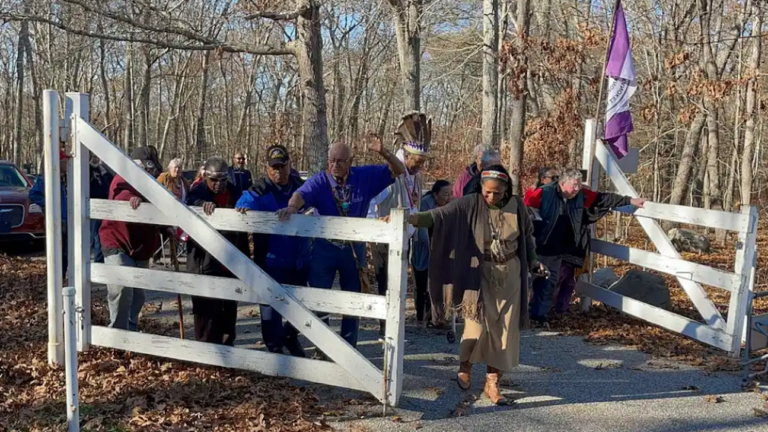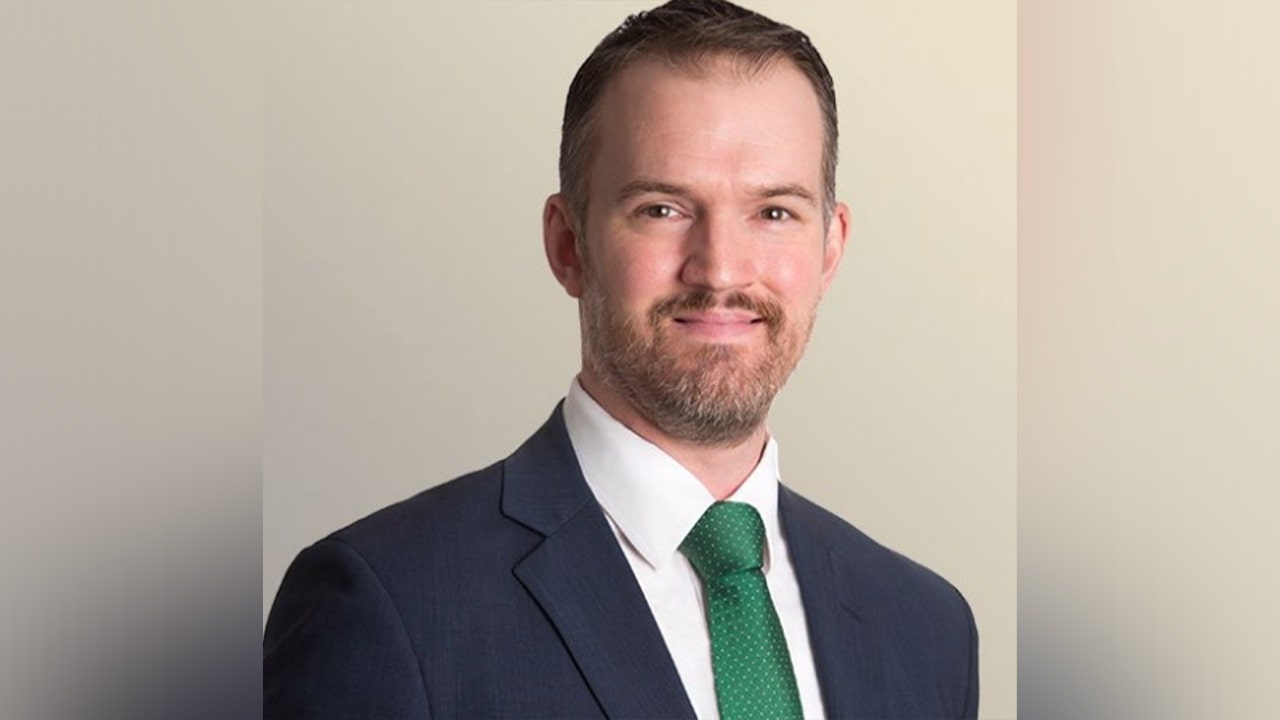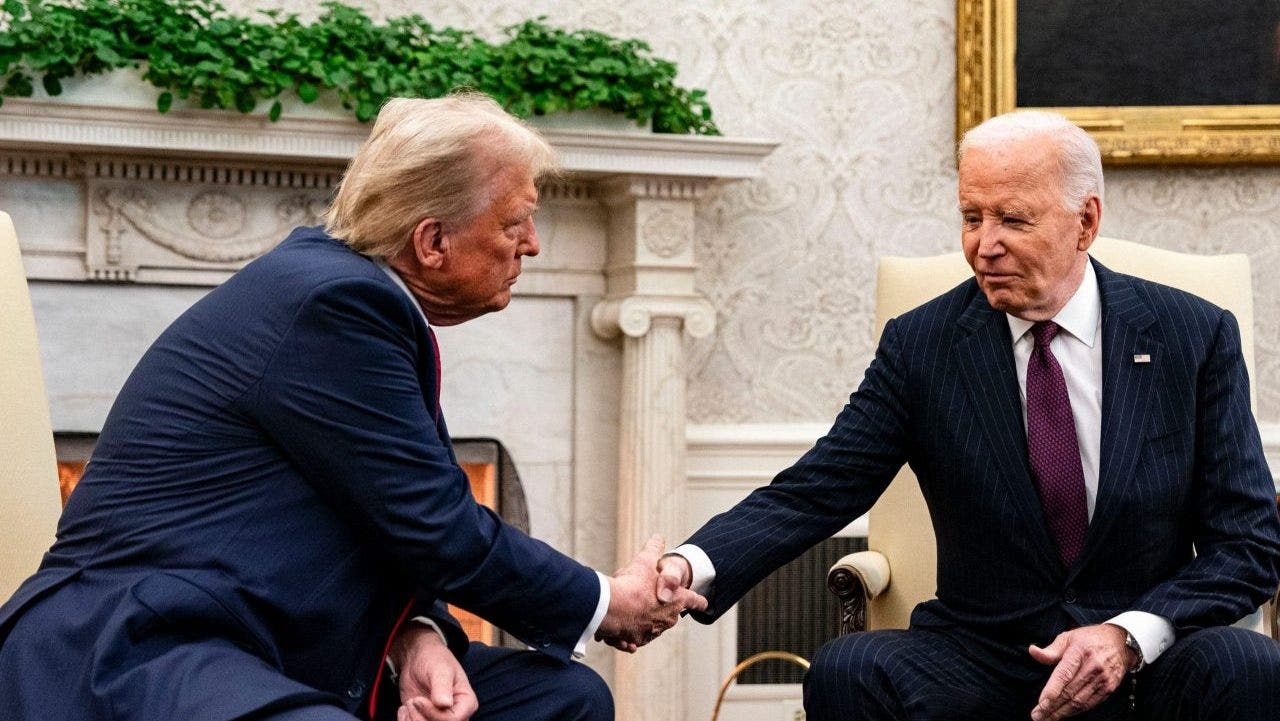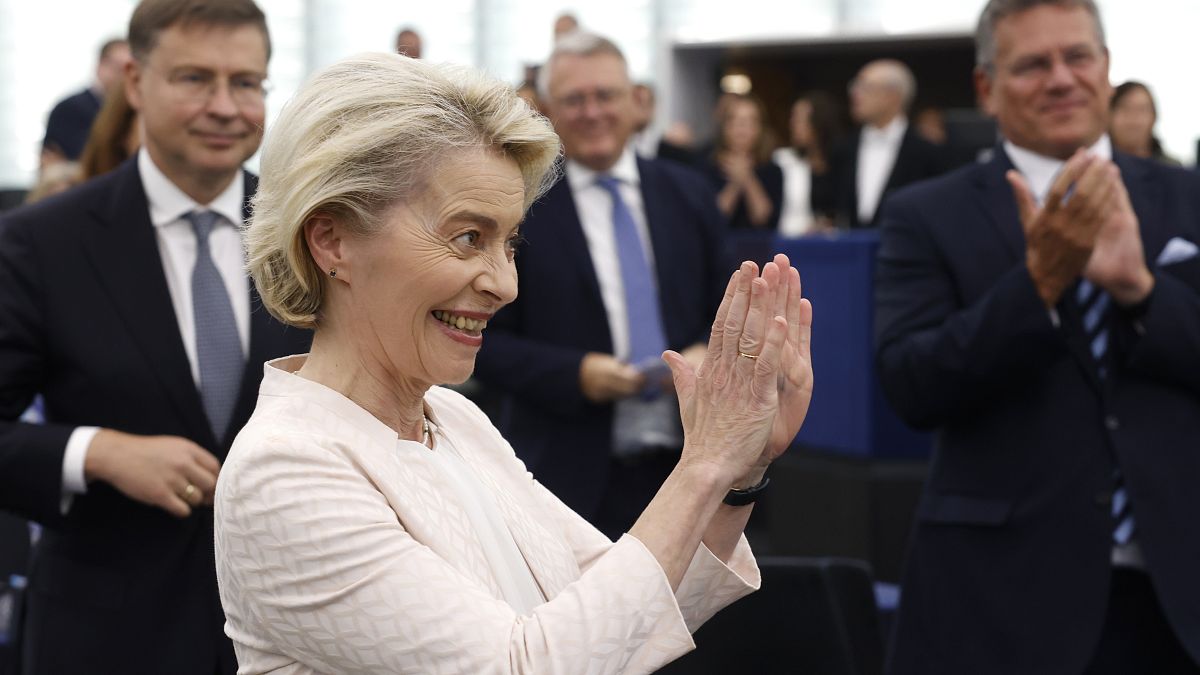South-Carolina
It's weird to be a grown-up orphan. It forced my siblings and I to reckon with faith

Two years ago, my dad was in the ICU at a hospital in Salt Lake City. He’d been transferred there from a hospital in my hometown of Idaho Falls, Idaho, because his ruptured aorta demanded more experienced surgeons.
My brother and sister and I flew in to be with him, but after a few days, the signs were trending positively, and he looked at us and deadpanned, “What are you still doing here? I’m fine! Go!”
So we all kissed him on the cheek and flew back to our respective homes. He died a couple weeks later.
Our dad, Stephen, was the parent who was supposed to stick around for a while. It’s not like he was young. He was 74. That’s a pretty good life. But he was in such good shape. He lifted weights most days and had no serious health issues, and so when he died it felt like we had been robbed again.
Our mom, Linda, died of cancer in 2009. She was just 60 years old. She died before I met my husband. She never got to meet our kids. It felt very much like a life interrupted, cut way too short by a disease that made no sense in a woman who was such a life force herself.
I had convinced myself that because God, or the universe or whatever, had taken away Mom so early, we were definitely going to get to hang out with Dad until he was shuffling around his house like the old man he was supposed to become.
It didn’t work out that way.
Being a grown-up orphan is weird. I know I’m supposed to focus on how lucky I was to have my parents for as long as I did. But I still feel ripped off when my 9-year-old gets a hit in his little league game and I want to call my dad and give him the play-by-play. Or when my 11-year-old busts out in a song and dance in the kitchen, and I so desperately want to send a video to my mom because she would just love it – and him – so much.
But it’s deeper than that. After my dad died I felt an existential void. He and my mom both had rich and textured spiritual lives. With both of them gone, I realized I had never built that for myself. And I was consumed with questions about whether I had to in order to lead a meaningful, happy life.
Last spring, I set out to try to answer that question by talking to a lot of different people who were swimming around in the same murky existential waters, but had emerged with some kind of clarity.
One of the first conversations I recorded for this series was with my siblings, Abigail and Paul. I wanted to ask them direct questions about what they believe and how that did, or did not, help them navigate their own grief. We put that conversation in the vault for a while because it was so personal. But now, during the holidays, it feels OK to let it out into the world.
I’m not in the same emotional place as I was eight months ago. I’m far more comfortable in my not-knowing-ness. I am finding meaning in my work and my community and my family in new ways. I don’t feel empty anymore.
But this conversation captures where I was at a particular point in time – my brother and sister too. And a level of honesty I don’t think the three of us had shared before.
This interview has been edited for length and clarity.
Rachel: My first question, I mean, I know the answer to these questions, some of them, but can each of you try to define Mom and Dad’s spirituality?
Abigail: Dad always seemed very pragmatic about spirituality. Like, he was all about scripture. Not that he was taking scripture literally, but he was really steadfast in what he believed. And yes, he would be open to conversations and challenges, but Mom morphed. When we were young, I didn’t perceive Mom as this like hardcore Christian.
Rachel: She was a dabbler.
Abigail: Yeah. Past lives…
Rachel: Right! Reincarnation, some meditation.
Abigail: And then when she got sick, everything changed. And she became more in line with what Dad believed.
Paul: I agree that Dad had maybe a more rigid view. He came from the Presbyterian tradition and Baptist before that. He had studied all of these other religions, but he studied them at arm’s length. Whereas when Mom studied the other religions, she was open to the possibility that there were shared values, shared connections and philosophies that connected her spirituality to people of other faiths.
Rachel: Yeah. Like when Dad would study other stuff, it was more like an intellectual exercise. Whereas Mom was studying with a practitioner’s eye and heart. Like maybe she was going to incorporate that stuff into her own faith.
Paul: Yeah.
Rachel: So do you believe in God?
Paul: I do. Yeah. I don’t believe in a God in the sky pointing his finger like on the Sistine Chapel. I think the death of Mom and Dad made me go through a process of understanding, or made me think critically about what I do believe, you know, because it’s no longer a theoretical thing. Of course I thought about it when we lost all our grandparents, but with Mom and Dad, that’s every day you’re thinking about, where are they, you know? What happened to them?
So you have to process it differently. It did take some adaptation. I came to realize that when you think about what God is, it’s a spark, it’s the thing we all share that makes us unique. I think that resonates through a lot of different religions, and I think there’s a lot of commonality to that concept. And so my belief of God is born of the Christian tradition, but certainly encompasses the idea that energy is special and it’s in all of us and we all share it.
Rachel: Do you think that it took Mom and Dad dying for you to be able to develop language around what you just said? To come to that conclusion about what God is to you?
Paul: I think it was always there because we had been taught about other religions and other ideas. We’d never been told that other religions are wrong, that wasn’t part of our upbringing. So it was that process of thinking critically about what I believed, and that was spurred by their deaths.
Rachel: Abi, do you believe in God?
Abigail: I did. I was so angry after Mom died. Towards the end, there was so much discussion about God and her faith and Dad’s faith in the afterlife, and I still really struggle with understanding how someone so good could be taken from us.
Going back to something that Paul was saying is that I believe in energy, because there are too many coincidences that occur for there not to be some power of some sort. I’ve had some really lovely happenstances with birds. And as we know, birds were Mom’s thing.
Rachel: She felt really connected to birds, seagulls in particular.
Abigail: And so, I’ve had circumstances where I’m like, maybe there is a god. Maybe there is something. But I completely shut it down and cut it off when Mom died. And then when Dad died, it felt like we were going through the motions. Using the language that he had, what we grew up with, those traditions.
Prayer is not something that happens in my life and sometimes I think I should pray because it’s what we were taught we should do. But yeah, there’s a lot of anger and sadness about it because I feel like I am missing something because I don’t have that spirituality – I don’t know if that’s the right word. But God is not something that’s present in my life. And I feel like there’s a hole.
Rachel: Yeah. I get that. Part of how I’ve been describing this, it’s like Mom and Dad built this scaffolding, like spiritual scaffolding. They gave us the foundation, built like the exterior beams of what a spiritual life could look like. And then it was sort of up to us to build the rest of our spiritual home.
And I feel like I never really got around to that part. Because they had such rich faith and strong religion, I felt like I didn’t really have to do any of that work because it felt like it was there for me just whenever I needed a dose of it or something. I could retreat and I could take shelter in their faith. And then bail.
So then when they died, I feel like all that’s left is the scaffolding of it and it feels unsteady and empty. There’s nothing there and I feel compelled to fill it up, but I’m not really sure how because the faith that we were raised in doesn’t quite feel like it gives me everything that I’m looking for. Does any of that make sense to you or does any of that ring true to you?
Abigail: Yes.
Paul: Yeah, so the idea that we were beneficiaries or, like, the box was sort of checked by Mom and Dad, having that tent for us to be inside of, that resonates. You know, at some point it’s up to you, cause it has to be a personal thing, right? It’s abrupt for us to have a change when our home base is no longer there.
But that doesn’t mean it has to fulfill everything either. I also don’t think it’s bad or awful that we don’t have our tent fully built out as soon as Mom and Dad are gone, because it’s supposed to be an ongoing thing for our whole lives. And so we can always seek to work on our own tent.
Rachel: Thank you for extending the metaphor. [laughs]
Paul: It’s a good metaphor. I like it.
Rachel: Remember when Mom was sick, she started planting this idea in our minds that she was going to live in the wind, right? Which is why she gave us these beautiful wind chimes. And I’ve got mine hanging up and the wind will blow and I will think about her.
And that’s a useful story, you know, for thinking about what happens when the people we love aren’t here anymore. That’s what religion does in large part for people, it helps us make sense of that question. How have each of you thought about that? Do you believe in an afterlife?
Paul: Well, you know, dust to dust. I think the energy goes back into the universe, like the law of thermodynamics. You can’t create or destroy energy. So, like, I do believe in an afterlife, but I don’t think it’s one where we have a house and it’s populated with all our dogs and friends and family and toys that we want and stuff like that.
It’s not something that we can really conceive of. I don’t try to define what the afterlife is too much. I think there’s limitations on our ability there.
Rachel: Abi?
Abigail: I want to. I want to believe that there’s an afterlife. But the answer would be no. I think there’s something. There’s energy. What that is, I don’t know, but it certainly is not that Mom is in heaven with Dad and our grandparents and they’re having a dinner party. That logically doesn’t make any sense to me. What about you?
Rachel: Oh, me? I don’t know. I think a lot of religious inquiry comes out of people trying to make sense of death and dying and the scariness of it and the uncertainty of it. And also parenting, explaining that stuff to your kids, you know? It’s like, do I really tell them that there’s, like, this place called heaven where Ima and Papa are?
Paul: I mean, you think about whether people have gravesites or they are cremated and how we handle remains. A lot of that is for the survivors, right? And so you can help the survivors process the way they need to be able to do it.
And I feel like, being the ones left behind, the concept of heaven or hell or an afterlife is one for the survivors again. And if we as a survivor need that, we have all of those memories and those things that our parents gave to us, which we’re lucky to have, by the way. I mean, we had real lives with our parents.
Rachel: Yeah.
Paul: We can manifest them ourselves and have them with us when we want to.
Rachel: I like that idea.
Paul: We carry heaven in our pocket.
Rachel: What? Did you just come up with that?
Paul: I did.
Abigail: That’s good, Paul.
Rachel: That’s so good! Hurry, write it down! [laughs]
Copyright 2023 NPR. To see more, visit https://www.npr.org.

South-Carolina
Warde Manuel discusses how Clemson-South Carolina winner could see College Football Playoff resume boosted
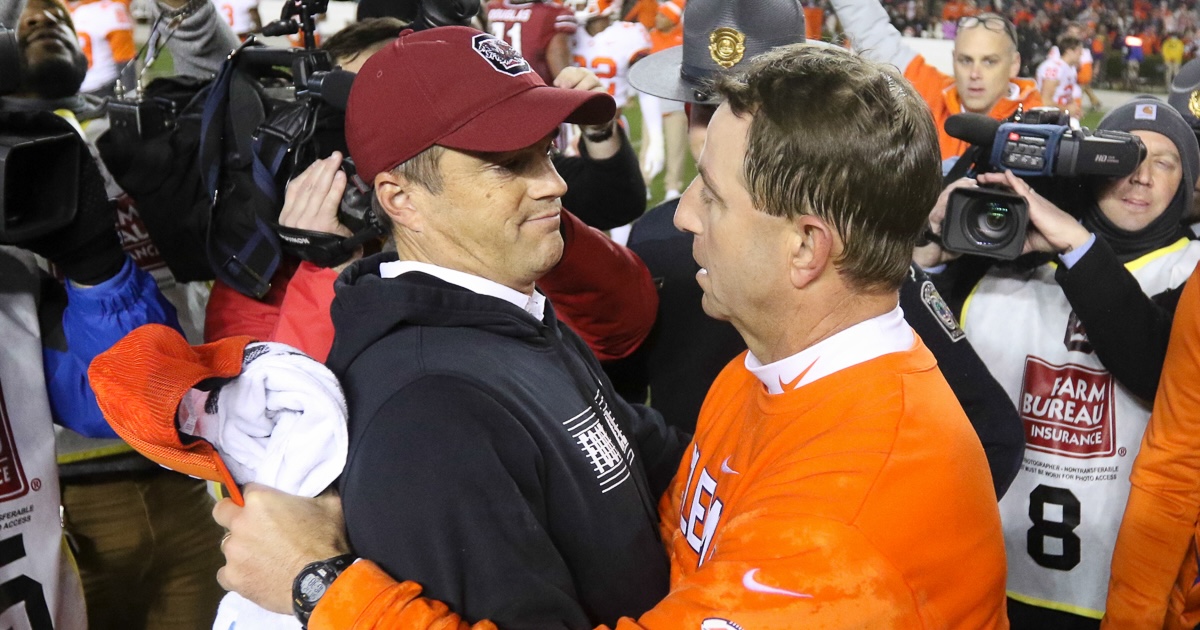
Ranked No. 12, Clemson is just on the outside looking in at the College Football Playoff. But the Tigers could help their case on Saturday.
Hosting in-state rival and No. 15 ranked South Carolina, Clemson could notch a very meaningful win. And on top of being the best win the Tigers would have notched all season, it would be a strong final argument to make for the selection committee — assuming Clemson doesn’t back into the ACC title game.
While he didn’t comment on specifics of a hypothetical, CFP selection committee chair Warde Manuel acknowledged a win would surely help Clemson’s case to snag an at-large bid, when asked directly about the Tigers.
“I’ll continue to say we don’t look forward and we don’t project, but winning always helps. I will say that,” Manuel said. “When teams win, we value what they do. I don’t know what that would mean towards where they will be in projecting, but there is value in winning games.”
And it’s a boost that could cut both ways. As much as a win could help Clemson, it could be equally valuable to South Carolina as the Gamecocks try to get in position for an improbable at-large bid, one that would require some chaos ahead in the rankings.
Manuel also explained why Clemson slotted at No. 12 ahead of a cadre of SEC teams.
With Clemson slotted in at No. 12 in the latest College Football Playoff rankings, ahead of the likes of Alabama and Ole Miss, the decision of skeptics, despite the Tigers having a slightly better win-loss record.
Both the Crimson Tide and Rebels are 8-3, but have arguably better resumes than Clemson, which lacks many big wins. Nevertheless, the selection committee found the Tigers resume to be just enough to put them ahead, according to Manuel.
“Well, Clemson slid up with some losses ahead of them by Alabama and Mississippi, and they had a win against Citadel, obviously, but that wasn’t the big reason,” Manuel said. “Obviously they’re at 9-2, with only two losses. The teams right behind them have three losses. We just felt as a committee as we looked at their body of work, with three straight wins after their loss to Louisville, including back-to-back wins against Virginia Tech and Pitt, that they deserved to move up into that 12th position.”
Manuel also discussed how the committee came to the decision to delineate Alabama and Ole Miss as the No. 13 and No. 14 teams, respectively.
Three SEC teams – Alabama, Ole Miss and South Carolina – have three losses, and all eyes were on where they’d come in during the fourth rankings reveal.
Ultimately, Alabama came in as the highest-ranked of the group at No. 13, followed by Ole Miss at No. 14 and South Carolina at No. 15. According to Manuel, that decision was largely due to head-to-head matchups.
Manuel said the Crimson Tide’s resume – which includes wins over Georgia, Missouri and LSU – was a separator in the committee’s decision. But since Alabama and Ole Miss both have wins over South Carolina, that led them to come in at 13, 14 and 15, respectively.
South-Carolina
Shane Beamer updates injuries going into Clemson game
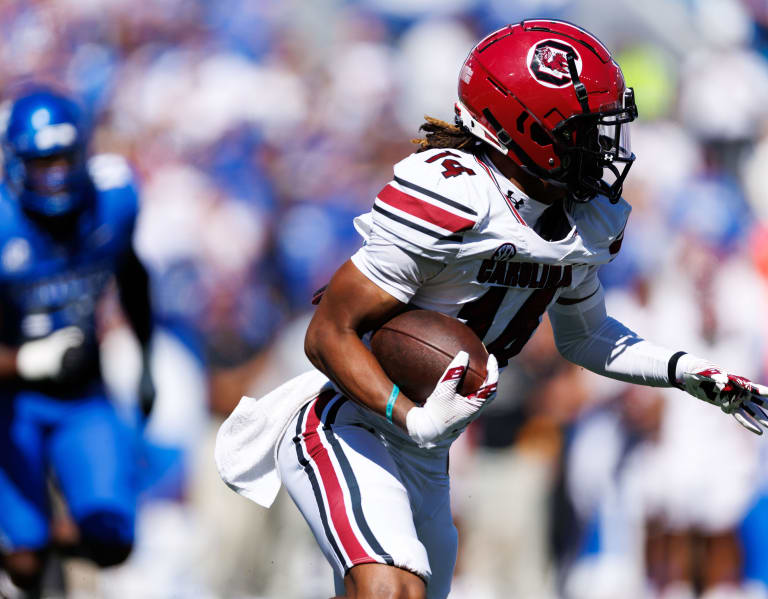
For the first time really all year, South Carolina football is facing some injury questions. Wide reciever Jared Brown, tight ends Joshua Simon and Michael Smith all missed the Wofford game last week, forcing the Gamecocks to change up their approach offensively and play with one or no tight ends all day.
On Tuesday afternoon at his weekly press conference, Shane Beamer updated the injury sitution going into Saturday’s game at Clemson.
Regarding Brown, Beamer said “he’ll be fine” and confirmed the Coastal Carolina transfer will play in his first rivalry game this weekend. Wide reciever Vandrevius Jacobs on the other hand is out this weekend with a hamstring injury he suffered against Wofford.
Beamer did not have a further update on either of the tight ends, simply saying “we’ll see” with regards to Simon and Smith.
************************************************************************
Looking to continue the conversation? Join us on the insider’s forum to talk all things South Carolina football.
South-Carolina
Keys to Success for Clemson Tigers Against South Carolina Gamecocks
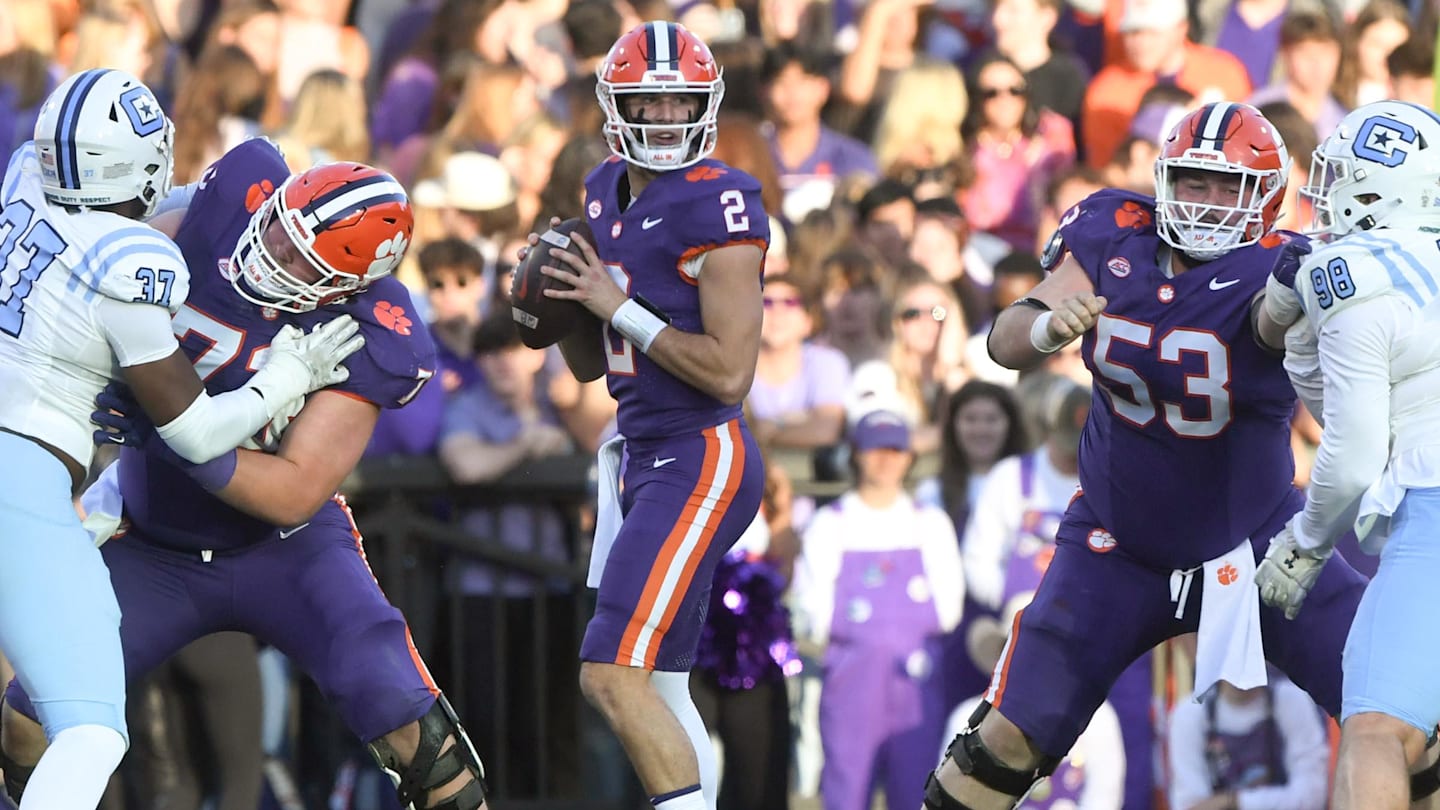
The Clemson Tigers are getting ready for what will be a crucial game in Week 14 against the South Carolina Gamecocks.
This rivalry matchup is not going to disappoint, as both teams are coming into the game as Top-25 schools. For the Tigers, there is a lot on the line in this matchup.
Due to Clemson not holding the tie-breaker against the Miami Hurricanes in the ACC and the SMU Mustangs already clinching a spot, the Tigers are going to have to hope for a Hurricanes’ loss to the Syracuse Orange if they are going to make the title game.
However, due to recent upsets in the SEC, another path might have emerged for Clemson to make the College Football Playoffs. If they can beat a Top-25 team in the Gamecocks on Saturday, it could be the type of statement win that propels them into an at-large bid.
While making the CFP still might be realistic, they first and foremost have to handle South Carolina, which will be no easy task.
The Gamecocks have also had a great season, and they could present some matchup problems for Clemson.
On offense, South Carolina is a run first team. Stopping the run has been an issue at times for the Tigers, as they just recently got torched on the ground against The Citadel Bulldogs. If Clemson is unable to stop or at least slow down the rushing attack for the Gamecocks, it will allow them to control the pace of the game. That obviously wouldn’t be ideal for the Tigers.
Furthermore, on the defensive side of things, the Tigers’ offense is going to have their work cut out for them against a very strong Gamecocks defense. Clemson quarterback Cade Klubnik has had a very strong season and this could end up being a defining game of his college career.
Going back to the win against the Pittsburgh Panthers, the Tigers’ offense really struggled on the ground trying to run the football. If that’s the case once again in Week 14, it will fall on the shoulders of Klubnik to get the job done.
This matchup could very well go down as one of the games of the week and potentially the year, with both teams being fairly even talent-wise on paper. For Clemson, this is a must-win game to keep their playoff hopes alive, as a win this late in the season against a Top-25 team would be a nice last thing to put on their resume.
Overall, the Tigers are going to need to have a balanced attack and prepare to stop the run if they are going to come away with the win against their rival.
-

 Science1 week ago
Science1 week agoTrump nominates Dr. Oz to head Medicare and Medicaid and help take on 'illness industrial complex'
-

 Politics1 week ago
Politics1 week agoTrump taps FCC member Brendan Carr to lead agency: 'Warrior for Free Speech'
-
/cdn.vox-cdn.com/uploads/chorus_asset/file/25739950/247386_Elon_Musk_Open_AI_CVirginia.jpg)
/cdn.vox-cdn.com/uploads/chorus_asset/file/25739950/247386_Elon_Musk_Open_AI_CVirginia.jpg) Technology1 week ago
Technology1 week agoInside Elon Musk’s messy breakup with OpenAI
-

 Lifestyle1 week ago
Lifestyle1 week agoSome in the U.S. farm industry are alarmed by Trump's embrace of RFK Jr. and tariffs
-

 World1 week ago
World1 week agoProtesters in Slovakia rally against Robert Fico’s populist government
-

 Health4 days ago
Health4 days agoHoliday gatherings can lead to stress eating: Try these 5 tips to control it
-

 News1 week ago
News1 week agoThey disagree about a lot, but these singers figure out how to stay in harmony
-

 Health1 day ago
Health1 day agoCheekyMD Offers Needle-Free GLP-1s | Woman's World





